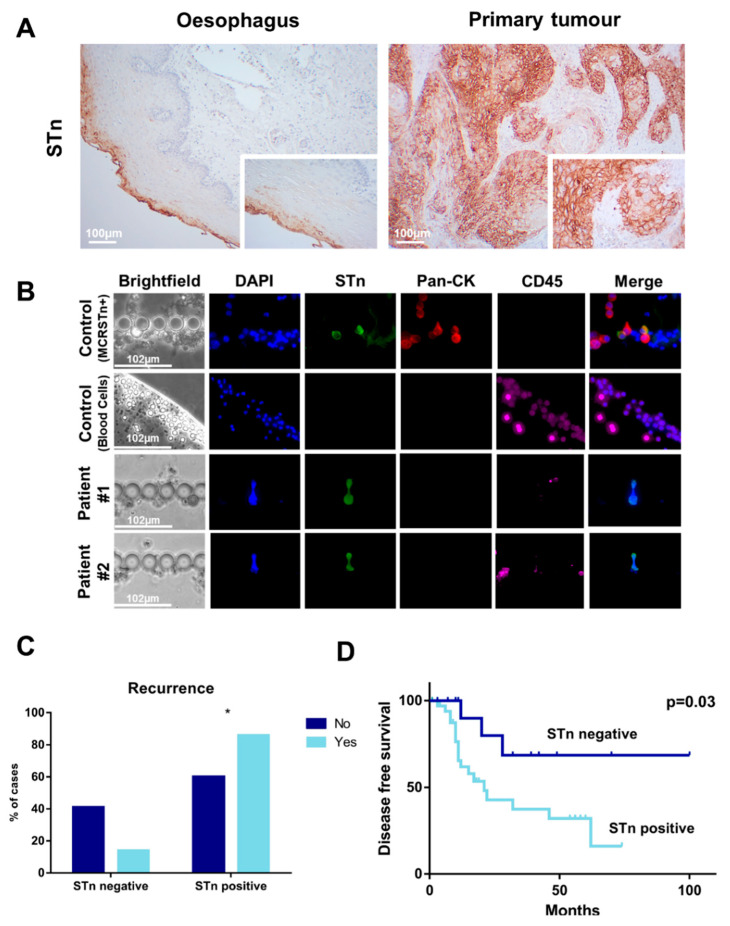Figure 1.
The STn antigen is overexpressed in esophageal squamous cell carcinomas (ESCC) and CTCs, being associated with recurrence and decreased disease-free survival. (A) The STn antigen is overexpressed in approximately 70% of ESCC and adjacent lymph node metastasis and shows little expression in the healthy esophagus. Most ESCC and lymph node metastasis present focal STn expressions showing high intensity staining at the cell membrane. On the other hand, the healthy esophagus shows a diffuse low to moderate cytoplasmatic staining in differentiating cells of the mucosa facing the lumen of the organ. (B) CTCs recovered from the blood of ESCC patients express the STn antigen. CTCs were isolated from whole blood by size-based microfluidics devices presenting an internal architecture that enables the entrapment of larger cancer cells with minimal contamination from blood cells. In addition to STn (green), cell nuclei were stained with 4′,6-diamidino-2-phenylindole, dihydrochloride (DAPI) (blue), pan-CKs (red) was used as an epithelial marker, generally expressed by some subpopulations of cancer cells and CD45 (purple) was used to identify blood cells. ESCC-derived CTCs presented a DAPI+/pan-CKs-/STn+/CD45− phenotype. MCRSTn+ bladder cancer cells were used as positive control for cancer cells expressing the STn antigen (DAPI+/pan-CKs+/STn+/CD45−) and blood cells from healthy donors were used to demonstrate the absence of STn in CD45+ cells (DAPI+/pan-CKs−/STn−/CD45−). (C) STn expression associates with recurrence (* p < 0.05; Chi-square) and (D) disease-free survival (p = 0.03, Chi-square).

